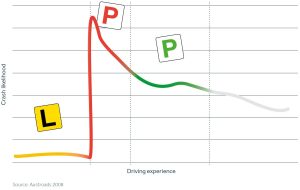Too many young Tasmanians die or suffer life changing injuries on our roads. They are being seriously injured and killed at a higher rate than any other age group.
This needs to change. To achieve this, the Tasmanian Government will make necessary reforms and continue to deliver programs that will improve road safety at every stage of young people’s lives.
Our youngest Tasmanians, those in early childhood and primary school, are extremely vulnerable when using our roads. This is especially true when not properly restrained in the car, when walking or riding a bike and when getting on and off the school bus.
Several programs help keep children safe, including the provision of school crossing patrol officers and campaigns to encourage lower speeds around schools and school buses.
Tragically, road trauma is the second leading cause of death for Tasmanians aged 17 to 25.
Support is provided to community organisations to deliver bike and road safety education programs in schools and free child restraint checks across the state. Later, as young people approach the age when they can get a licence they receive support through a range of programs to educate them about safe driving and to assist them to progress through the licensing system.
Education and training initiatives such as the Rotary Youth Driver Awareness Program, the Royal Automobile Club of Tasmania’s (RACT) Ready for the Road course and the Full Gear motorcycle safety program will help to develop the skills of young road users and teach them how to use the road with the right attitude and a sense of shared responsibility.
Gaining a provisional driver licence is a huge achievement in the life of a young person, offering them greater independence and improved access to social and economic opportunities. Enabling young people to take this important step is a major priority.
Sadly though, it’s at this time in their lives, having just graduated from their period of supervised learning, that they are at the greatest risk of being involved in a crash.

The implementation of an enhanced Graduated Licensing System (GLS) – called Plates Plus – supports young people to become safer drivers by making sure they get more on-road supervised driving experience in a wider range of conditions and that they demonstrate the right skills before being allowed to drive without supervision.
The enhanced GLS will better protect provisional licence holders from distractions such as mobile phones and peer aged passengers.
